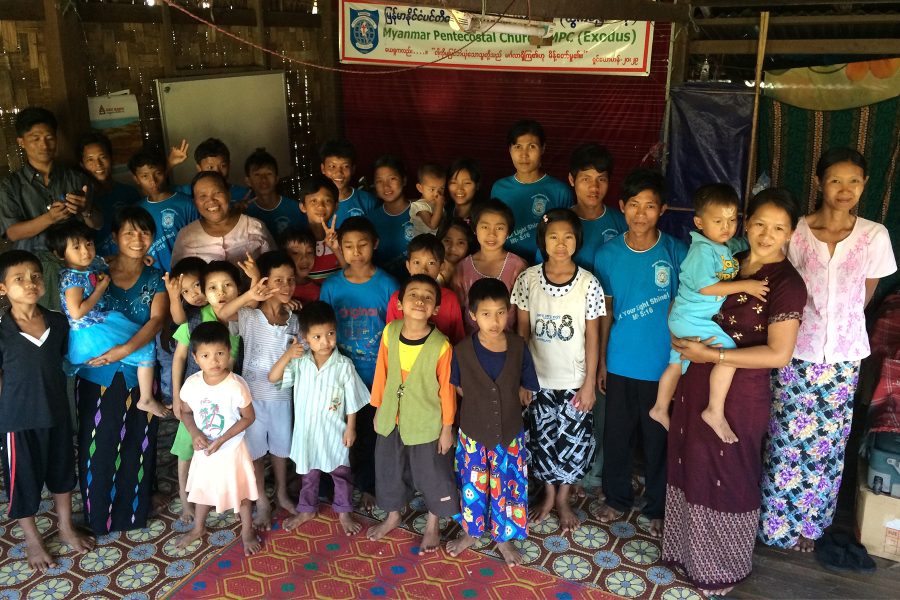In today’s world, there are many different ways that people communicate and understand information. While some societies rely heavily on reading and writing, others rely more on oral communication methods. This definition list will explore key concepts related to oral cultures and literate societies, including terms such as literacy, oral communicator, heart language, and missiology. Whether you’re an expert in cross-cultural ministry or simply curious about the different ways that people communicate around the world, this list will provide valuable insight into the complex world of orality and literacy.
Key Concepts of Orality and Literacy Definition List
 Literacy – The ability to read and write.
Literacy – The ability to read and write.- Oral communicator – An individual who primarily uses oral methods for transmitting and receiving information.
- Literacy continuum – A spectrum of abilities related to reading and writing.
- Heart language – A person’s native language.
- Missiology – The study of cross-cultural ministry.
- Formal education – Education obtained through schools or institutions.
- Cultural DNA – The shared customs, beliefs, and practices of a particular group.
- Oral cultures – Cultures in which oral communication is the primary means of transmitting information.
- Literate societies – Societies in which reading and writing is the primary means of communication.
- Spoken – An organization that aims to provide access to information through forms that are easily understood by those in oral cultures.
- Lausanne Conference – A conference for Christian leaders from around the world, hosted by the Lausanne Movement.
- International Missions Board – An organization that aims to spread Christianity around the world.
- UNESCO – The United Nations Educational, Scientific and Cultural Organization.
- Orality – The use of oral communication as the primary means of transmitting information.
- Cross-cultural ministry – Efforts to spread Christianity to different cultural groups.
- Heart languages – A person’s native language.
- Written form – written systems like alphabets or characters.
- Engage critically – The ability to understand and analyze written text.
- Cultural incentives – Factors that encourage or discourage certain behaviors or practices in a culture.
- Personal devotion – Personal practices related to one’s religious beliefs.
- Incentives – Factors that encourage or discourage certain behaviors or practices.
- Access to education – availability and opportunity to learn.
- Missiology expert – an expert in cross-cultural ministry.
- Lausanne Movement – An organization that aims to bring together Christian leaders from around the world.
- Text-based methods – Communication methods that involve written text.
- Oral forms – Communication methods that involve spoken or oral language.
- Engage with – actively take in and process.
- Cultural norms – expected or typical behaviors or practices in a culture
In today’s world, communication is a complex and nuanced topic. While many people in developed countries take reading and writing for granted, in many parts of the world, oral communication methods are still the primary means of transmitting information. Understanding the key concepts related to orality and literacy is crucial for anyone interested in cross-cultural ministry, education, or language development.
One of the most important concepts in this conversation is literacy. Simply put, literacy refers to the ability to read and write. However, literacy is not a binary concept – there is a wide range of abilities when it comes to reading and writing. On one end of the spectrum, there are individuals who are completely illiterate, meaning they cannot read or write at all. On the other end of the spectrum, there are individuals who are highly literate and able to engage critically with written text. In between these two extremes, there is a wide range of abilities, and this is where the concept of the literacy continuum comes in.
The Literacy Continuum
The literacy continuum refers to the spectrum of abilities related to reading and writing. The majority of the world’s population falls somewhere along this continuum, with many individuals having only limited abilities when it comes to reading and writing. This is particularly true in oral cultures, where oral communication methods are the primary means of transmitting information.
An oral communicator is an individual who primarily uses oral methods for transmitting and receiving information. This includes speaking, listening, and storytelling. In oral cultures, oral communicators may have limited abilities when it comes to reading and writing, but they are experts in using oral forms of communication.
Heart language is another key concept in this conversation. A person’s heart language is their native language, the language they grew up speaking and hearing. For many individuals in oral cultures, their heart language may not have a written form, making it difficult for them to learn to read and write in that language.
Missiology is the study of cross-cultural ministry, and it is an important field for understanding the complexities of orality and literacy. Missiology experts have studied the ways in which oral cultures and literate societies differ and have developed strategies for reaching individuals in oral cultures with the message of Christianity.
Formal education, or education obtained through schools or institutions, plays a significant role in the development of literacy. However, in oral cultures, access to formal education may be limited, making it more difficult for individuals to learn to read and write. Cultural DNA, or the shared customs, beliefs, and practices of a particular group, also plays a role in literacy development. In oral cultures, reading and writing may not be a part of the cultural DNA.
For more on orality click here.

